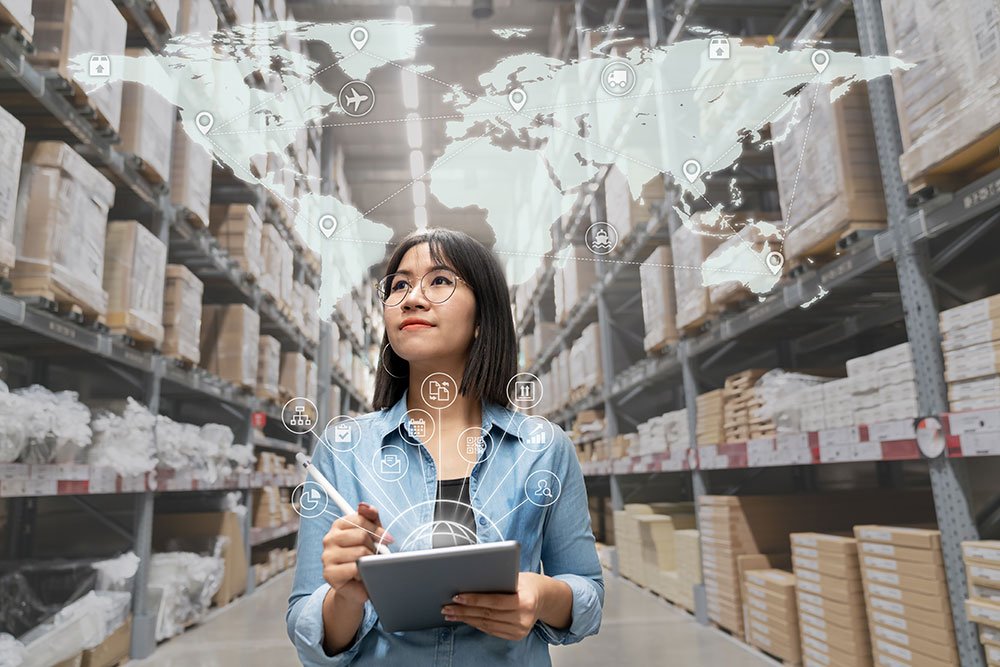
What is Omnichannel shipping and how is it changing the logistics industry?
Omnichannel retail has begun to flourish quicker which includes concepts like webrooming, showrooming, and commerce of no-line, which are necessitating logistical networks that are not only present but also capable of adjusting to the needs of customers across all channels.
To create and accommodate a dynamic delivery, fulfillment and quick returns, logistic providers are working together with adapting seamless technological integration, data sharing, and collaboration.
What is Omnichannel shipping?
The omnichannel strategy is based on a highly tailored approach in which marketing, sales, and logistics collaborate to provide the best possible experience. The basis for consistent fulfillment of orders received through numerous channels is laid by logistics and supply chains.
With the rise of social commerce, customers are more likely to seek out better and faster experiences after making a purchase. While e-commerce platforms seek to make the purchase experience as smooth as possible, logistic businesses work to make the delivery process as smooth as possible.
What were the initial challenges faced by the logistic industry?
As omnichannel shipping becomes more of a requirement, the logistics business is quickly adjusting to new technologies and innovation. Initially, the industry encountered challenges such as a lack of inventory, which made it difficult for businesses to keep track of many deliveries and their deadlines. The delivery chain would fragment into many locations and modes of transportation, causing delays in order fulfillment. Finally, the product return option was time consuming and inefficient leading the customer to a troubled, lengthy process and experience.
What is it like, now?
Logistic company’s working is made of many elements which require a strong management system in place, implementing omnichannel innovations and re-building the logistical fulfillments to accommodate is much easier then. With multiple software and systems available, the industry is better able to grasp the working with full throttle and efficiency in performance.
Each logistic company in the industry’s omnichannel presence has begun to take the lead in terms of service offering, worldwide reach, and creating a smooth procedure for its end customers and business partners. All of this with adoption of advanced technology and innovation in the working patterns.
Summing up
The border between online and physical purchasing has blurred, and logistics managers must now adjust to the new omnichannel paradigm. Retailers’ high degrees of customization and customisation in purchasing and transportation techniques can no longer be met efficiently and competitively without intelligent and automated logistics management. The concept of omnichannel logistics is still in its infancy. This technique of distribution and collaboration benefits both clients and enterprises. Customers gain from fast delivery and personalized offers, while businesses win from using many channels to acquire new customers.
It only gets more exciting from here for an industry that is rapidly shifting in response to digitization and technology.
To know more about our services visit our website. Follow us on Facebook and LinkedIn for exciting tips and updates.

Nitin O Mahipal - MD of Mega group
Nitin O Mahipal, CEO and MD of Mega Group providing Transportation, 3PL and packing and moving services has earned his MBA in Logistics and Finance from the Cardiff University, UK. He expanded MEGA's services to FMCG, Retail, Pharma, Textiles, rubber and tyre MNC’s revolutionizing customer experience with digital initiatives like the Mega App. Under his leadership, MEGA's warehouse foot print grew from 50,000 to over 12 lac square feet space, PAN India Network of branches and Fleet of trucks, with transit times slashed to hours.

